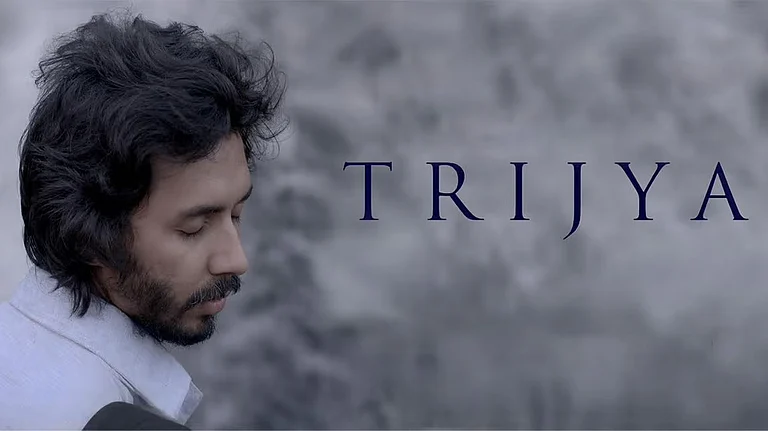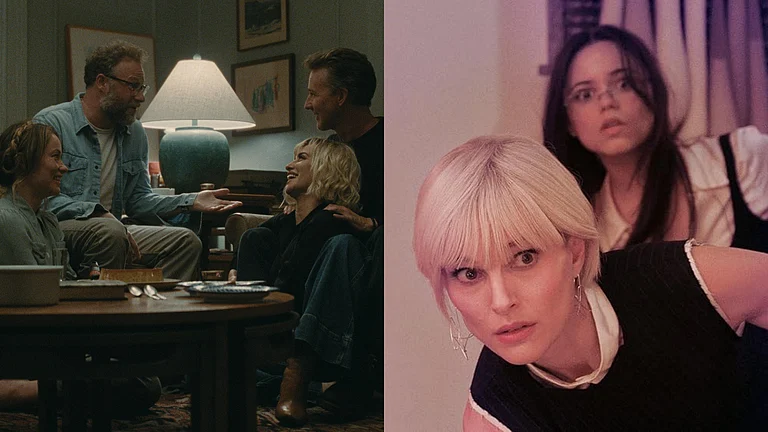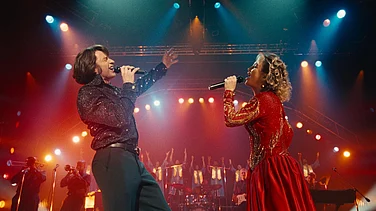
Good Fortune (2025) is directed by Aziz Ansari, marking his return to feature filmmaking.
Starring Keanu Reeves and Aziz Ansari in lead roles, with Seth Rogen, Keke Palmer, and Sandra Oh in key supporting parts.
A witty divine-comedy about a guardian angel who swaps the lives of a struggling worker and a tech mogul to teach them what truly matters in life.
Set in the city that worships reinvention, Los Angeles, Good Fortune tries to do just that—reimagine the idea of divine intervention as a workplace comedy gone slightly celestial. Here, Keanu Reeves plays Gabriel, an angel tasked with saving people from texting and driving, which, to him, is a painfully uninspired mission. “I want bigger wings,” he pleads, craving purpose in a heaven that runs suspiciously like corporate America. Sandra Oh’s Martha, his exasperated boss, tells him to stick to his lane, which, in Gabriel’s case, involves traffic both literal and metaphorical.
Down on Earth, Arj (Aziz Ansari), a broke documentary editor moonlighting across jobs, hides the grim comedy of his life from his father. Somewhere between gig shifts and gas station meals, he meets Elena (Keke Palmer), a fellow hustler demanding better working conditions.
Ansari’s Good Fortune is a strange beast: half cosmic satire, half social experiment, where heaven’s inefficiency mirrors the earthly grind. When Gabriel swaps Arj’s life with that of Jeff (Seth Rogen), a tech bro insulated by money and delusion, the film briefly flirts with brilliance. What happens when divine bureaucracy meets Los Angeles’ excess? Apparently, a lot of disco lights, self-help jargon, and misplaced empathy. Arj, now living Jeff’s life, soon realises that while money can’t buy happiness, it sure rents comfort convincingly. “It doesn’t solve everything,” he says, “but it solves a lot.” The audience laughs, then pauses—because he’s right, and that’s the problem.
Ansari’s humour lands with quiet precision: deadpan, observant, and laced with middle-class exhaustion. The film skewers both gig culture and tech capitalism with the same blade, revealing a world where angels get demoted for underperformance and CEOs meditate for productivity metrics. But amid this heavenly chaos, Good Fortune occasionally forgets its own thesis. For every sharp moment of wit, there’s a detour into predictability. Does Ansari want us to question the absurdity of modern ambition or simply laugh at it? Perhaps both, though not always in equal measure.

There’s a lot to admire in the film. Its quiet sincerity, the way it commits to simplicity while handling such chaotic inner worlds, feels like a love letter to life’s unpolished truths. There’s a tenderness in Ansari’s humility before the unpredictable theatre of human existence. While my all-time favorite comedian-turned-director remains Ricky Gervais for After Life (2019), this one too earns its place, not by trying too hard to provoke laughter or tears, but by observing the the tender discomforts that make life sting and soothe all at once.
Still, the performances hold the film together. Reeves brings a gentle awkwardness to Gabriel—half saint, half intern—while Oh, as his boss, dispenses divine HR wisdom with seasoned grace. Seth Rogen is pitch-perfect as the oblivious millionaire, a man so detached from reality that enlightenment feels like a networking goal. And Ansari himself, as Arj, plays the role with a self-aware weariness that borders on documentary. There’s also a running irony here: the angel sent to teach humility ends up learning capitalism’s fine print.

In the end, Good Fortune doesn’t entirely soar, but it never crashes either. It meanders through its simplistic storytelling and existential questions with charm, if not always a certain direction. The visual design gleams and the jokes hit often enough to at least chuckle. Ansari’s directorial venture understands the times: a generation tired of moral lessons yet desperate for meaning. And if you needed one more reason to watch—Keanu Reeves, with a ponytail and apron, eating a chicken nugget for the first time, might just be divine enough.




























